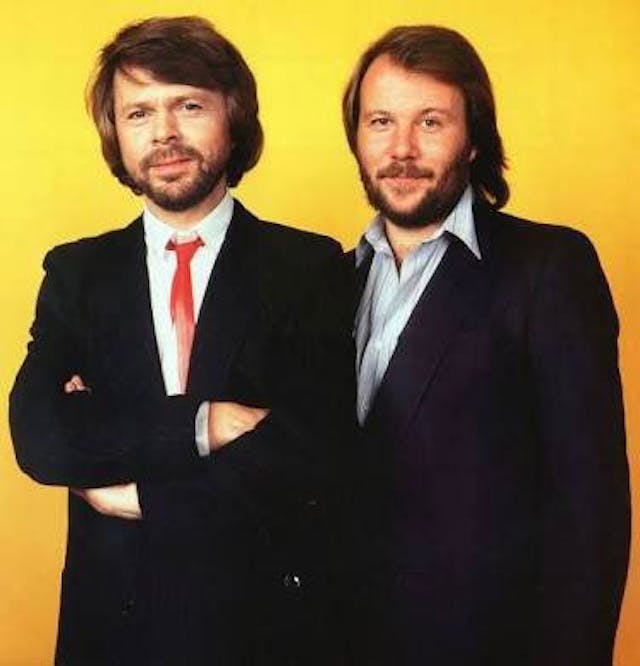ABBA blog
Thoughts and observations on the Swedish foursome

Björn and Benny - sometimes changing the tune ever so slightly to accommodate the lyrics.
Is the melody sacred or not?
published February 20, 2020
In a 1997 interview with the Bee Gees, discussing their songwriting methods, they claimed that once they'd written a melody they were happy with, they would not change it. In other words, they would not adjust it so as to accommodate the lyrics.
In a similar example, Carole Bayer-Sager has told the story of writing the lyrics for the mega-hit 'That's What Friends Are For'. Her opening line was "I never thought I'd feel this way", but this would mean that the first note of the melody, written by Burt Bacharach, would have to go. He was adamant that that first note must remain, which explains why the opening line ultimately turned out to be the somewhat odd "And I never thought I'd feel this way".
I always thought that Björn and Benny were similarly protective about their melodies, but listening to The Michael B. Tretow Tapes for my forthcoming book ABBA On Record, I've discovered that this was not always the case. For instance, you can often hear, when they're working out a backing track, that there was originally an additional note or two in the tune, which had to go when the lyrics were written.
More recently, I realised something similar that I'd never thought of, regarding the Swedish and English versions of 'Waterloo'. In the Swedish version, the opening line is "Jo, jo, vid Waterloo Napoleon fick ge sig" and in the English it's "My, my, at Waterloo Napoleon did surrender". But there is actually one more syllable in "Napoleon did surrender" than in "Napoleon fick ge sig". If they'd wanted to protect the original melody, they could've written "Napoleon surrendered" instead, as that phrase had the correct number of syllables. However, it probably sounded better when the line ended with a vowel sound - "surrend-ah!" - so the melody was fiddled with just a bit. In other words, Björn and Benny weren't above changing things just slightly, if it would help the overall outcome.
The insights gained from The Michael B. Tretow Tapes are just one of the many revelations in ABBA On Record. You can support the project by pre-ordering your copy here: abbaonrecord.com
Your support matters!
© 2003–2025 Carl Magnus Palm. All rights reserved. Produced by Disco Works